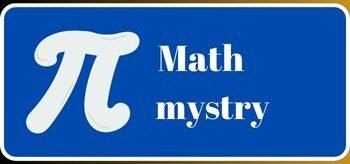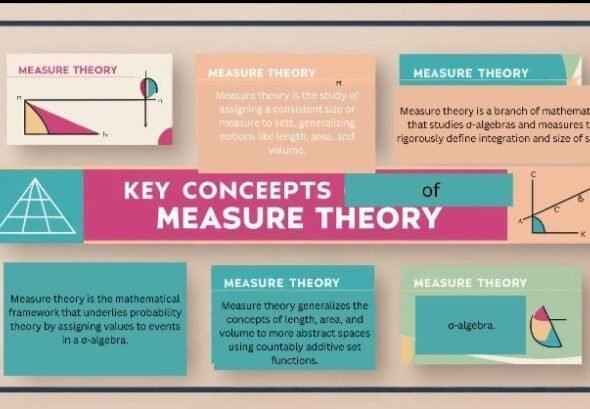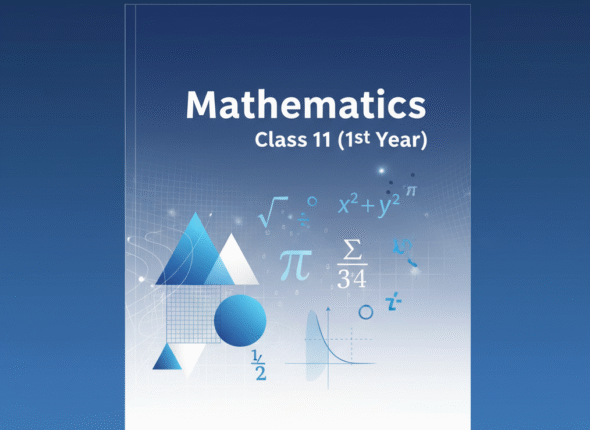Currently Empty: $0.00
- Description
- Curriculum
- FAQ
- Notice
- Reviews
Abstract Algebra and Group Theory: Course Overview
Abstract Algebra is a fascinating and essential field of mathematics that explores the intricate world of algebraic structures, including groups, rings, and fields, focusing on their properties, relationships, and operations. This branch of mathematics forms the foundation for much of modern mathematical research and applications. By studying these structures, learners gain a deep understanding of how mathematical systems are organized and how they behave under various operations.
Within the broad scope of abstract algebra, Group Theory occupies a central place. It specifically studies sets called groups, along with an operation that satisfies certain axioms, such as closure, associativity, identity, and inverses. Understanding these fundamental properties allows students to explore the concept of symmetry, transformations, and structure in mathematics. Group theory not only provides a theoretical framework but also has practical applications in diverse fields, including physics, chemistry, computer science, cryptography, and coding theory. For instance, concepts like rotational symmetry in molecules or permutation groups in computer algorithms are deeply rooted in group theory principles.
Through the careful study of group theory, students uncover the foundational structures that govern a wide array of mathematical systems. This exploration enables learners to connect abstract concepts to real-world applications, bridging the gap between theory and practice. In essence, mastering abstract algebra and group theory equips learners with a mathematical toolkit that is invaluable for both academic and professional pursuits.
What Will I Learn?
This course is designed to provide a comprehensive understanding of abstract algebra and group theory. By the end of the course, students will be able to:
Fundamental Concepts:
Understand the basic principles of algebraic structures, including groups, rings, and fields. Students will learn how these structures are defined, classified, and how they relate to one another. Concrete examples will help illustrate these abstract ideas, making them accessible to learners at all levels.
Properties and Axioms:
Explore the defining properties and axioms that characterize algebraic structures. This includes studying closure, associativity, identity elements, inverses, and distributive laws, which form the backbone of algebraic reasoning. By mastering these principles, students can analyze complex systems with confidence.
Operations:
Gain insights into algebraic operations, including homomorphisms, isomorphisms, and group actions. These concepts help students understand how algebraic structures can be transformed and compared, providing a deeper appreciation of the relationships within mathematics.
Key Topics:
Delve into important subjects such as the order of groups, cyclic groups, subgroup structures, and symmetry operations. Additional topics may include normal subgroups, quotient groups, and the role of group theory in solving mathematical problems across different domains.
Applications:
Discover the diverse applications of group theory in fields such as physics (quantum mechanics, crystallography), computer science (algorithms, cryptography), and chemistry (molecular symmetry, spectroscopy). Understanding these applications helps students see the relevance of abstract algebra in real-world scenarios, enhancing both interest and comprehension.
Critical Thinking Skills:
Develop analytical and problem-solving abilities that are crucial for tackling complex mathematical systems. The logical reasoning gained from studying abstract algebra equips students with a mindset that can be applied beyond mathematics, in research, programming, and other STEM disciplines.
Targeted Audience
This course is carefully tailored to meet the needs of a wide range of learners and professionals:
Students:
High school and college learners pursuing mathematics or related disciplines who aim to enhance their grasp of abstract algebra and group theory. This course provides both foundational knowledge and advanced concepts, making it suitable for beginners as well as intermediate learners.
Educators:
Teachers, professors, and tutors looking for high-quality resources and materials to enrich their algebra and group theory curriculum. The course offers clear explanations, examples, and problem-solving strategies that can be integrated into classroom teaching or online instruction.
Lifelong Learners:
Individuals with a genuine interest in mathematics who wish to delve deeper into advanced concepts. This course offers an engaging journey into the elegance and logic of algebraic structures, enabling learners to broaden their knowledge beyond conventional studies.
Researchers and Professionals:
Mathematicians, scientists, and professionals in related fields seeking to apply group theory and abstract algebra in their research, algorithm design, or scientific modeling. The practical applications covered in the course make it highly relevant for professional growth.
Math Enthusiasts:
Anyone fascinated by the beauty, patterns, and applications of mathematics will find this course intellectually stimulating. The course encourages students to explore, question, and appreciate complex mathematical ideas, fostering a deeper understanding of the discipline.
Conclusion
By enrolling in this course, learners will develop a solid understanding of abstract algebra and group theory, building both theoretical knowledge and practical skills. With clear explanations, real-world applications, and structured learning modules, students can confidently tackle challenging mathematical concepts. This course not only equips learners with the tools to succeed academically but also empowers them to apply mathematical reasoning in diverse areas such as science, engineering, technology, and beyond.
Whether you are a student, educator, researcher, or math enthusiast, this course will expand your horizons, sharpen your analytical abilities, and provide a comprehensive foundation in abstract algebra and group theory.
Course materials
-
1Lecture 1:
This lesson describes Historical note of group Theory
-
2Lecture 2
In This Lesson we Describes about Groups and Properties of Group
-
3Lecture 3:
Torsion-Free and Mixed Groups:
This lesson explores torsion-free groups, which have no elements of finite order, alongside mixed groups that feature both torsion and torsion-free elements, showcasing their distinct properties in group theory.
Semi-Groups and Monoids:
In this lesson, we investigate semi-groups characterized by associative binary operations and monoids that incorporate an identity element, highlighting their fundamental significance in algebra and their applications across various domains.
-
4Lecture 4
In This Lesson We describes about Abelian group and its Examples
-
5Lecture 5
we will Describes about Historical Note about an abelian group or commutative
-
6Lecture 6
In This Lesson we will discuss about
Order of a Group
Order of an element
Periodic Group
Involution:
-
7Lecture 7:
In This Lession We Will Discuss About :
Subgroup
Proper and Improper subgroups
Examples of sub-groups:
Theorem
-
8Lecture 8
This Lesson Describes:
Cyclic group :
Results on cyclic groups
-
9Lecture 9
This Lesson Describes:
Centre of a group
Results
-
10Lecture 10
we will Briefly Describes about:
Klein’s four groups
Properties
-
11Lecture 11
In This Lesson we will discribe about :
Normalizer of a Subgroup
Results:
-
12Lecture 12
In This Lesson We Will Discuss About:
First Isomorphism Theorem
Second Isomorphism Theorem
Third Isomorphism Theorem
-
13Lecture 13
In This Lesson WE will Learn About :
Complete Group
Derived Group OR Commutator Subgroup:
Simple group :
Direct Product:
Properties:
-
14Lecture 14
In This Lesson We Will Discuss About :
Quaternion Group
Properties
-
15Lecture 15
In This Lesson We Will Discuss About :
Homomorphism
Endomorphism
Monomorphism
Epimorphism
Isomorphism
Theorem
-
16Lecture 16
In This Lesson WE Will Learn About:
Conjugation as an Automorphism:
Embedding:
Simple group :
Complete Group:
Derived Group OR Commutator Subgroup:
Commutator subgroup of D3:
Cauchy theorem for finite abelian groups :
-
17Lecture 17
In This Lesson We Will Learn About :
Normal subgroups:
Examples
What is an LMS (Learning Management System)?
A Learning Management System (LMS) is a software application that facilitates the administration, documentation, tracking, and delivery of educational courses and training programs. It provides a centralized platform for educators or organizations to manage and deliver content, assess learner progress, and facilitate communication.
What are the key features of a Learning Management System?
Common features of an LMS include content management, user management, assessment tools, reporting and analytics, communication tools (such as forums or messaging), and integration capabilities with other software systems. These features collectively support efficient and organized online learning experiences.
How can an LMS benefit educational institutions or businesses?
LMS streamlines training and educational processes, allowing institutions and businesses to deliver consistent content, assess learner performance, and monitor progress. It facilitates remote learning, personalized learning paths, and often reduces administrative overhead, making it an essential tool for scalability and efficiency.
What is the role of an LMS in employee training and development?
In the corporate setting, an LMS plays a crucial role in employee training and development. It enables organizations to create, deliver, and track training programs, ensuring employees have access to relevant resources. LMS also supports compliance training, skill development, and ongoing learning initiatives.
1. Feature Alert!
Explore Our Latest Additions – Unleash Enhanced Functionality Today
2. Maintenance Notice
Scheduled Downtime on [Date]. Thanks for Your Patience.
3. Upcoming Event!
Join Us for [Event Name]. Save the Date and Get Ready for an Exciting Experience!
Stars 5
1
Stars 4
0
Stars 3
0
Stars 2
0
Stars 1
0



